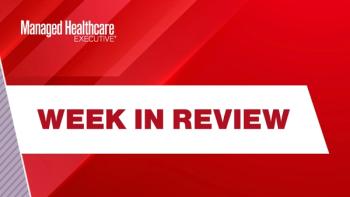
Here’s what you missed this week on Managed Healthcare Executive.

Here’s what you missed this week on Managed Healthcare Executive.

Healthcare is treated as an investment good in Spain in contrast to the American framing, which treats healthcare as a consumer good.
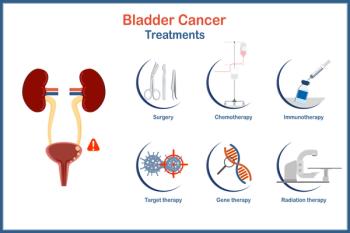

High levels of integrin beta-6 (IB6) in metastatic non-small cell lung cancer suggest that it could be a target for treatment.

The investigational lenacapavir-bictegravir tablet has the potential to reduce the pill burden of HIV treatment, according to a recent news release.

The FDA has approved Poherdy as the first interchangeable biosimilar to Perjeta, expanding treatment options for adults with HER2-positive breast cancer across both early-stage and metastatic settings.

mRNA COVID-19 vaccines enhance immune responses, improving cancer treatment outcomes with immune checkpoint inhibitors and offering hope for hard-to-treat tumors.

New research highlights DR-70 as a promising noninvasive biomarker for diagnosing and staging bladder cancer, potentially improving early detection strategies.

In this interview, Lasara Firefox Allen, MSW, shares insights on gender-affirming menopause care, the unique needs of gender-diverse individuals and the importance of educating healthcare providers to offer inclusive support.


Results from two studies show that fenebrutinib significantly reduced relapses and slowed disease progression when compared with currently available treatments.

A study reveals circulating tumor cells (CTCs) as potential biomarkers for predicting aggressive DCIS, aiming to reduce overtreatment and improve patient outcomes.

Veterans in the healthcare workforce are promoted more often and stay longer than non-veteran peers, highlighting their valuable leadership skills amid growing national healthcare staffing shortages.

The immunosuppressive drugs used in severe COVID-19 cases might leave patients vulnerable to shingles.
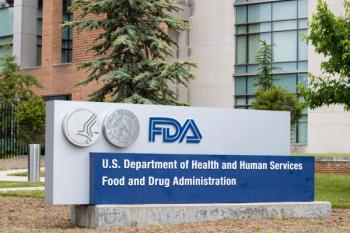
After reviewing new data that proves hormone replacement therapy does not increase a woman’s risk of receiving a breast cancer diagnosis, the FDA has removed the black box label.

AI transforms healthcare by enhancing disease detection, patient care and hospital efficiency but requires careful implementation to ensure equity and effectiveness. Managed Healthcare Executive sought for common themes in where AI currently stands in healthcare by analyzing our past coverage in the past.
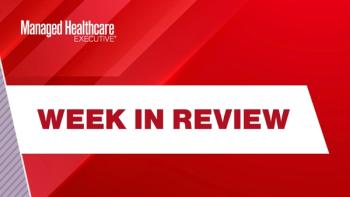
Here’s what you missed this week on Managed Healthcare Executive.

An off-target interaction with nuclear receptor PPARγ may trigger a sequence of events that results in lung injury.

Milliman’s Jennifer Cruz says plans are losing rebates because of steep price discounts negotiated under the Inflation Reduction Act. but that they need to be sure that renegotiation of rebate guarantees doesn’t get too broad.

Pharmacy benefit managers are approaching health plans with value-based contracts that consider lower costs on the medical benefit of the insurance, says Jennifer Cruz of Milliman.


AI and virtual care revolutionize dermatology, enhancing melanoma detection, expanding patient access and improving efficiency in clinical practices.

New interim safety and efficacy data for primary biliary cholangitis (PBC) treatment Livdelzi (seladelpar) demonstrates sustained itch relief and the potential to slow disease progression.

The discounts will be for not-yet-approved formulations of Wegovy, Zepbound and Lilly’s oral GLP-1 orforglipron. Additionally, a pilot program starting in 2026 will provide for Medicare Part D coverage of these investigational anti-obesity medicines.

Drugmakers are scrambling to set up direct-to-consumer programs in response to President Donald Trump’s executive orders. Should pharmacy benefit managers be worried? Are the programs good for patients?

Meet the newest member of the Managed Healthcare Executive editorial advisory board.

Melissa Hanna, J.D., MBA, co-founder and CEO of Mahmee, was one of Managed Healthcare Executive’s 2021 Emerging Leaders in Healthcare. Four years later, she continues to lead the company as it expands payer partnerships and reaches more than 60 million covered lives — while embracing a new chapter of growth shaped by motherhood.
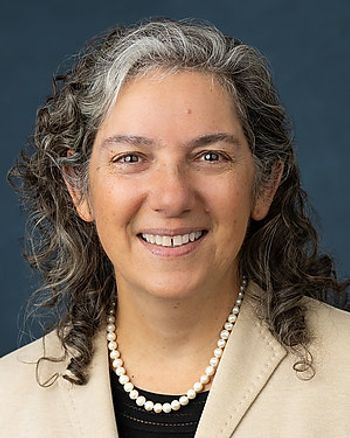
The results of the FIBRONEER trial were the basis for the FDA approval of nerandomilast in October 2025.

Can artificial intelligence reliably spot cancer risk earlier and more reliably than the human-based version?
